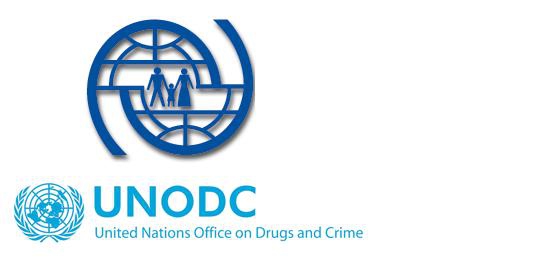
Families have the potential to act as a major protective force in the lives of children and adolescents. Healthy, stable and mutually supportive family relationships are essential to the healthy development of children and the prevention of adolescent problems. Families that lack security and warmth in parent-child relationship can cause their children to face a greater risk of behavioural problems and subsequent substance abuse.
Evidence-based parenting skills and family skills training programmes have been found to be a highly effective way to prevent substance use among children and adolescents. These programmes offer skill-building for parents on monitoring and supervision of children's activities, communication as well as setting age-appropriate limits. These programmes improve�family functioning, organization, communication and interpersonal relationships. They� have been found to yield multiple positive outcomes for children and adolescents including decreased drug use, decreased child depression and aggression, and decreased family conflicts, as well as increased child attachment to school and increased child social competence and pro-social behaviour.
To promote positive parenting�
 programmes countrywide, �UNODC Iran decided to produce the educational film "Parenting: Healthy Youth" for parents of students aged 10 to 13, based on scientific and evidence-based theories and approaches in the drug use prevention field and in cooperation with a renowned film director, Mr. Bijan Birang. The production of the educational film included Iranian experts from the Drug Control Headquarters (DCHQ), the Ministry of Education (MOE), Tehran Municipality, and religious experts in this field, as well as the film production team, in order to tailor-make it for the Iranian culture. The United Nations Children Fund Office (UNICEF) in Iran also contributed to the production of the film. The high-quality educational film was produced and finalized with the generous financial contribution of Sweden, Germany, Norway and Italy.
programmes countrywide, �UNODC Iran decided to produce the educational film "Parenting: Healthy Youth" for parents of students aged 10 to 13, based on scientific and evidence-based theories and approaches in the drug use prevention field and in cooperation with a renowned film director, Mr. Bijan Birang. The production of the educational film included Iranian experts from the Drug Control Headquarters (DCHQ), the Ministry of Education (MOE), Tehran Municipality, and religious experts in this field, as well as the film production team, in order to tailor-make it for the Iranian culture. The United Nations Children Fund Office (UNICEF) in Iran also contributed to the production of the film. The high-quality educational film was produced and finalized with the generous financial contribution of Sweden, Germany, Norway and Italy.The hard work and dedication of Mr. Birang and the production team were appreciated in an award-giving ceremony on 26 November 2013 at the Iranian Centre for International Conferences, with the presence of Dr. Rachel Calam, prominent Professor of Child and Family Psychology from the University of Manchester/United Kingdom and high-ranking officials and experts from national governmental organizations, namely Mr. Babak Dinparast, Deputy of Department for Drug Demand Reduction at DCHQ, Ambassador Mahmoud Bayat, Director General of International Relations at DCHQ, and Dr. Nader Mansour Kiyaee, Deputy, Office on Social Harms Control/MOE, as well as the members of the diplomatic corps in Tehran.
Mr. Leik Boonwaat, the Representative of the UNODC in Iran, pointed out that the UNODC Country Office, as part of its efforts to promote evidence-based practices in the country, has been supporting family skills training programmes in the Islamic Republic of Iran since 2005 through developing specialized training package including: "Positive Parenting is Prevention" (for parents of children aged 10-13), a package for parents of high risk students (aged 13-16), Families and Schools Together Programme (FAST) (for children aged 5-6), Family Strengthening Programme (SFP), and the current "Healthy Youth" educational film.
Ambassador Bayat stated that DCHQ, in its efforts to fight against narcotic drugs, implements drug demand reduction projects which aim to increase public awareness, enhance public knowledge, and develop public life skills. Participants called for more attention, resources and efforts in the field of drug use prevention as necessary tools to effectively address the challenge of drug use.
Everybody has a role to play towards the achievement of this objective, including DCHQ, other relevant ministries and institutions, civil society organizations, municipalities, associations, universities and the media. UNODC Iran, with the support of its funding partners, stands ready to continue to assist and support national efforts in this field through the provision of scientific-based information, as well as the promotion of evidence-based practices that provide families with the skills and opportunities to live a healthy life and make healthy choices.

By UNODC.
The Iran Project is not responsible for the content of quoted articles.











